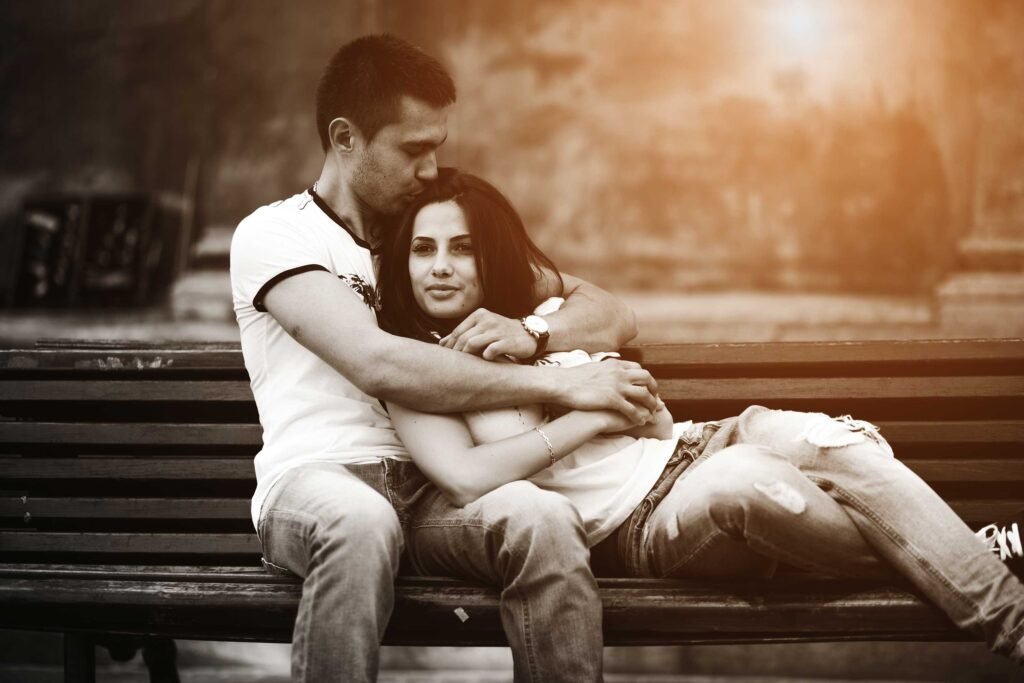The Core Elements of Good Relationships

Table of Contents
A great relationship isn’t simply about finding someone who shares your interests or enjoying grand romantic gestures. While these things are wonderful, they’re only a small part of what makes a relationship truly strong and long-lasting. The real foundation of any successful partnership lies in the deeper, often unspoken qualities that help both individuals weather life’s challenges together. Tolerance, patience, and forgiveness are the core elements that form the backbone of a lasting relationship.
Tolerance: Accepting Each Other Fully
A truly successful relationship is built on the principle of tolerance, accepting your partner for who they truly are. This means embracing their personality, their quirks, and even their flaws. Every individual comes to a relationship with a unique set of experiences, values, and traits. When you enter a relationship, it’s crucial to understand that your partner won’t be perfect. There will be moments when they will frustrate you, when their behavior or decisions won’t make sense to you. Tolerance allows both partners to be themselves without fear of judgment or rejection.
Tolerance also fosters emotional intimacy. When both partners feel that they are accepted and loved for who they truly are, they are more likely to open up, share their deepest thoughts, and feel safe expressing their emotions. This acceptance isn’t just about letting things slide; it’s about making a conscious choice to understand, support, and love your partner as they are.
When a relationship is built on tolerance, it creates a safe space for both partners to be open and vulnerable. This vulnerability helps build trust and brings them closer together. It also deepens their emotional connection because both people feel free to be their true selves. This foundation of acceptance and authenticity is what helps a relationship grow strong and healthy.
Patience: Giving Each Other Room to Grow
Patience is another cornerstone of a strong relationship. Love isn’t a quick-fire affair it’s a slow, developing process. Relationships take time, effort, and most importantly, patience. Both partners need the space to grow, both individually and as a couple. Life changes, and so do people. In a relationship, growth doesn’t happen in a straight line, and it certainly doesn’t happen overnight. Each partner needs to give the other the time and space to develop into the best version of themselves.
Patience in a relationship means understanding that growth is a process. Sometimes, your partner will go through phases of change, and it might not always be easy to navigate. Personal growth might bring challenges so, your partner might be changing in ways you hadn’t expected or you might find yourself in unfamiliar territory. Patience is about giving each other the benefit of the doubt and understanding that growth often requires time and space. This doesn’t mean tolerating bad behavior, but it does mean recognizing that change is a natural part of life and that both individuals need to evolve at their own pace.
When both partners approach change with patience, they create a relationship that’s flexible, adaptable, and resilient. It allows them to navigate challenges without resentment, as each partner is given the time and encouragement needed to become the best version of themselves.
Forgiveness: Letting Go of the Past
Forgiveness is another crucial element in any lasting relationship. No one is perfect, and mistakes are inevitable. In fact, it’s the willingness to acknowledge and work through mistakes that separates a strong relationship from one that will falter. When one or both partners make mistakes, it’s important to remember that holding onto grudges only builds walls between you.
Forgiveness doesn’t mean forgetting; it means letting go of the emotional weight that comes from past hurts. It’s about choosing to move forward with love and compassion instead of allowing resentment to poison your relationship. Holding onto anger or bitterness only breeds disconnection. Instead, when partners forgive each other, they create space for healing, growth, and renewal in their relationship.
Practicing forgiveness allows partners to learn from their mistakes, work on improving themselves, and strengthen their bond in the process. When both partners understand that forgiveness is a two-way street and practice it willingly, the relationship becomes more resilient, and the connection becomes even stronger. Mistakes will happen, but forgiveness gives the relationship a chance to grow stronger with each challenge.
Why Do Relationships End?

Many relationships start with love, excitement, and high hopes for the future, but not all of them last. Breakups and divorces happen for many reasons, but they often come down to misunderstandings, unmet expectations, or drifting apart emotionally. One of the biggest challenges is when the love that once felt so strong and passionate fades away, leaving behind indifference or even bitterness.
When love shifts from affection to dislike or contempt, it’s often due to unresolved issues, communication breakdowns, or a lack of mutual respect. Sometimes, partners can drift apart without realizing it, or the emotional connection fades over time. It can also happen when one or both partners stop making the effort to maintain their bond or when the relationship feels like more of a burden than a source of joy.
The truth is, most relationship problems can be worked through if both partners are willing to try. Relationships aren’t something you throw away when things get tough but they’re a journey where both people come together to face challenges. Even when problems feel overwhelming, patience, forgiveness, and open communication can make a big difference. At its heart, a relationship is a partnership between two people who are committed to standing by each other, weathering the tough times, and growing stronger along the way.
The Importance of Choosing the Right Partner
One of the most crucial steps in building a lasting relationship is choosing the right partner. This decision should go beyond superficial attraction or initial excitement. A deep and lasting connection requires compatibility, shared values, and a willingness to grow together. It is important to look for qualities such as kindness, integrity, emotional intelligence, and resilience.

Equally important is the ability to know oneself before committing to another person. A strong sense of self-awareness and emotional maturity allows you to enter a relationship with a clear understanding of what you want, what you need, and what you are willing to offer. When both partners are grounded in their own sense of identity, they can support each other in ways that enhance the relationship.
The Power of Support in a Relationships
A great relationships is built on mutual support. This support extends beyond simply being there for each other during difficult times. It also involves encouragement, motivation, and celebrating each other’s successes. A supportive partner offers a safe space for vulnerability, where both individuals can express their fears, dreams, and aspirations without judgment. This emotional and practical support fosters trust, creating a relationship where both partners feel valued and understood.
Changing for the Better
In any healthy relationships, personal growth is an essential part of the journey. People change, evolve, and adapt as they experience life’s ups and downs. A relationship that thrives is one where both partners encourage and support each other’s growth. Whether it’s learning new skills, overcoming personal challenges, or evolving together as a couple, the willingness to change for the better strengthens the relationship.
The process of change in a relationships requires flexibility and adaptability. It’s not about asking someone to change for you but about growing together in ways that enrich both lives. Partners should be open to learning from each other, offering constructive feedback, and supporting each other’s efforts to become better individuals and a stronger couple.
Conclusion

Every relationships having misunderstanding, conflicts between them. They have to sort out what the problem is about. It’s about facing them together with love, respect, and understanding. The real foundation of a strong relationship lies in practicing tolerance, being patient, and learning to forgive.
When you choose the right partner, support each other, and commit to growing together, your relationship can become more than just lasting it can be deeply fulfilling. Relationships aren’t just about love, it’s about the commitment understanding the feeling the way of loving and building a partnership where both people inspire each other to be their best selves.
By embracing these values, you’ll find that challenges don’t tear you apart bringing you closer. Together, you can create a bond that stands the test of time, full of love, full of respect and true happiness.



